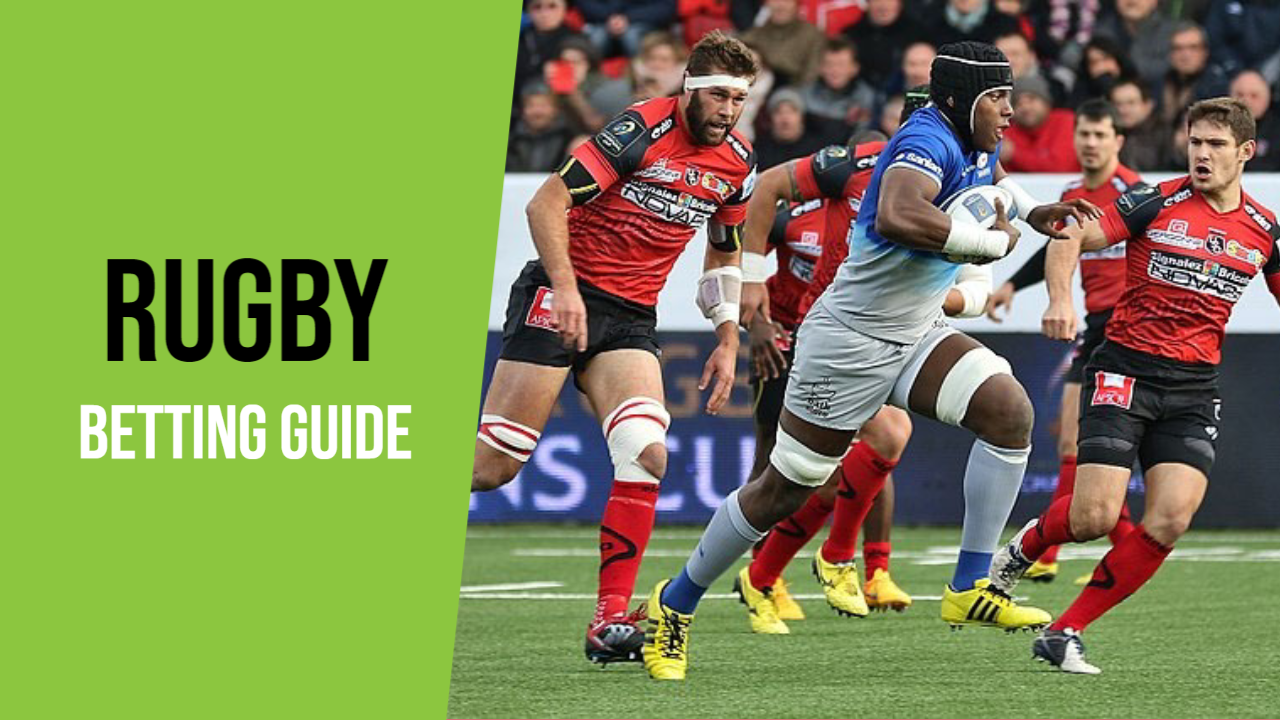
This rugby betting guide provides insights into both Rugby Union and Rugby League, highlighting the key factors that influence match outcomes. You’ll also discover reliable resources for player stats, team data, and betting tips — giving you the edge when placing rugby bets.
About Rugby Betting
Rugby betting involves wagering on the outcome of matches or tournaments, with markets covering a wide range of possibilities — from match winners and point spreads to first try scorers and total team points.
There are two main codes of rugby:
- Rugby Union – Played with 15 players per side, known for contested scrums, line-outs, and a mix of tactical kicking and running play.
- Rugby League – Played with 13 players per side, featuring a faster tempo and a six-tackle rule before possession changes.
Rugby enjoys a passionate following in countries such as the United Kingdom, South Africa, New Zealand, Australia, and France — with growing interest in Japan, the United States, and Italy. Both formats offer strong betting opportunities at club and international levels.
Why Bet On Rugby?
-
Fast-Paced & Physical
Rugby delivers constant action, with momentum swings, dramatic tries, and physical battles — making it an exciting sport for bettors seeking unpredictable outcomes.
-
Major Global Events
Tournaments like the Rugby World Cup, Six Nations, and The Rugby Championship attract huge betting interest and offer consistent, high-quality matchups.
-
Plenty of Points
Rugby is a high-scoring sport, especially in Rugby League. Total points and try-related markets offer depth and variety beyond simply backing the winner.
-
Passionate Fan Base
Many rugby punters are lifelong fans of the sport — betting to enhance their matchday experience or back their favourite teams with added confidence.
Popular Rugby Competitions
Rugby offers a wide range of high-profile competitions across both Union and League formats. These events provide strong betting markets and international interest throughout the year.
Rugby Union
- Rugby World Cup – Held every four years, this is the premier international tournament in Rugby Union, featuring the top nations from around the globe.
- Six Nations – An annual competition featuring England, France, Ireland, Italy, Scotland, and Wales. A cornerstone of European rugby.
- The Rugby Championship – The southern hemisphere’s top-tier international tournament, contested by Argentina, Australia, New Zealand, and South Africa.
- Gallagher Premiership – England’s elite domestic league, featuring top clubs and international stars.
- Top 14 – France’s premier Rugby Union competition, known for physicality, passionate crowds, and big-money signings.
- United Rugby Championship (URC) – A cross-border league featuring clubs from Ireland, Wales, Scotland, Italy, and South Africa.
- Super Rugby – A southern hemisphere competition primarily involving clubs from New Zealand and Australia, with a strong international betting presence.
Rugby League
- NRL (National Rugby League) – The top-level Rugby League competition in Australia and New Zealand, known for high-intensity matches and elite-level talent.
- Super League – Europe’s top Rugby League competition, featuring clubs from England and France. Known for fierce rivalries and strong betting markets.
Best Bookmakers for Rugby Betting
I recommend the following bookmakers for placing rugby bets:
#ad ● 18+ ● Play Safe ● GambleAware.org
#ad ● 18+ ● Play Safe ● GambleAware.org
#ad ● 18+ ● Play Safe ● GambleAware.org
#ad ● 18+ ● Play Safe ● GambleAware.org
#ad ● 18+ ● Play Safe ● GambleAware.org
#ad ● 18+ ● Play Safe ● GambleAware.org
New UK customers. Min £10 first deposit. Place a bet of £10 at min odds of 2.0 and get £40 in Free Bets within 48 hours. Restrictions apply. Full T&Cs apply, 18+. BeGambleAware.org
#ad ● 18+ ● Play Safe ● GambleAware.org
#ad ● 18+ ● Play Safe ● GambleAware.org
#ad ● 18+ ● Play Safe ● GambleAware.org
#ad ● 18+ ● Play Safe ● GambleAware.org
Considerations for Rugby Betting
Rugby is a physically demanding, strategically rich sport with two major codes — Rugby Union and Rugby League — each offering distinct betting dynamics. To bet effectively, it’s important to understand how physicality, team form, tactical choices, and officiating can all influence results.
Union vs League
Rugby betting spans two primary formats — Rugby Union and Rugby League. Each has unique rules, scoring systems, and flow, which affect how matches unfold and what markets provide value.
- Rugby Union – Played with 15 players per team. Union emphasises possession and territory, with contested rucks, mauls, lineouts, and a wider scoring range (tries, conversions, penalties, and drop goals).
- Rugby League – Played with 13 players per team and a six-tackle limit before possession changes. League is more continuous, faster-paced, and generally higher scoring — ideal for totals and handicap betting.
- Sevens – A shorter, faster version of Rugby Union played with seven players per side. High scoring and momentum-driven, it’s popular in international tournaments and Olympic formats.
Physicality & Roles
Rugby is one of the most physically intense team sports. Player attributes and positional roles significantly impact outcomes and betting angles:
- Forwards – Responsible for scrums, lineouts, and rucks. Physical dominance here often dictates match tempo and territory control.
- Backs – Faster, more agile players who exploit space and create scoring opportunities.
- Set-piece performance – Teams that excel in scrums and lineouts can generate more attacking platforms, especially in tight games.
- Injuries – Given rugby’s physical nature, teams often contend with injury disruptions. Key absences — particularly in the front row, fly-half, or goal-kicking roles — can swing match odds significantly.
Form & Momentum
As in other sports, form matters — but in rugby, it often reflects not just results, but team cohesion and tactical execution.
- Scrum & lineout success rates – Indicative of forward dominance and set-piece control.
- Discipline – A team prone to yellow cards or penalties often concedes territory and points — crucial in closely priced matches.
- Kicking success – In Union especially, goalkickers play a pivotal role. A low-percentage kicker can cost valuable points.
- Recent opposition strength – Wins against weak teams can mask underlying issues. Evaluate form contextually.
Tactics & Strategy
Rugby is a chess match with brutal collisions. Teams shape their tactics based on weather, opposition, and field position — all of which have betting implications:
- Territory vs possession – Some teams opt for tactical kicking and territorial gain; others prefer retaining ball and building phases.
- Defensive structure – Strong defensive units can frustrate attacking teams and keep matches low-scoring — ideal for under bets.
- Substitution strategy – Depth on the bench impacts second-half performance, especially in tight matches or extreme conditions.
- In-game adaptability – Teams that can shift tactics mid-match tend to outperform expectations, especially in live betting scenarios.
Refereeing & Discipline
Referees play an outsized role in rugby — more so than in most team sports. Their interpretation of breakdowns, scrum penalties, and offside lines can shape matches:
- Penalty counts – Teams conceding frequent penalties give up territory and invite scoreboard pressure.
- Card frequency – Some referees have reputations for being strict — relevant for markets like “Team to receive a card.”
- Home bias – In international fixtures especially, refereeing decisions may subtly favour the home side.
Injuries & Squad Depth
Injuries are common in rugby, and losing key players can quickly shift betting value. This is particularly true in:
- Fly-half or scrum-half positions – The tactical directors of most teams. A change here can affect kicking, tempo, and cohesion.
- Front row forwards – Injuries in this area often lead to scrum penalties or set-piece struggles — crucial in Union.
- Tournament context – In long competitions (like World Cup or Six Nations), managing fatigue and injury rotation is critical. Always monitor line-ups before betting.
Rugby Betting Markets
Rugby offers a variety of betting markets, each influenced by the version of the game (Union or League), playing conditions, and team strengths. Here are the most popular options:
- Match Winner: A straightforward bet on which team will win. Draws are rare but sometimes included depending on the bookmaker and format (especially in Rugby Union).
- Handicap Betting: A virtual points head start is given to the underdog. Ideal when there’s a clear favourite, as it evens up the odds and adds value to dominant teams.
- Totals (Over/Under): Bet on the total points scored in the match, usually by both teams combined. This is ideal when expecting a low-scoring grind or a try-fest.
- First Try Scorer: Wager on which player will score the first try of the match. This market offers long odds and is useful when you understand team tactics and attacking threats.
- Half-Time / Full-Time: Predict the leader at both half-time and full-time. This market rewards insight into momentum shifts and second-half strength.
- Prop Bets (Specials): Special bets such as total tries, yellow/red cards, drop goals, or whether a specific player will score. Ideal for in-depth fans looking for niche value.
Best Sites for Rugby Stats
The following sites offer free, detailed rugby statistics for both Union and League:
To explore these options further, check out: Best Sites For Rugby Statistics
Rugby FAQ
Rugby is a full-contact team sport where two sides compete to score more points by carrying, passing, and kicking the ball over the opponent’s goal line or between the goalposts. It comes in two main formats: Rugby Union (15 players per side) and Rugby League (13 players per side).
Rugby Union and Rugby League are two distinct codes of rugby, each with its own rules and style of play.
Rugby Union is played with 15 players per team and features rucks, mauls, contested scrums, and lineouts. It places emphasis on tactical kicking and longer phases of possession.
Rugby League is played with 13 players per team and uses a six-tackle rule, leading to a faster-paced, more direct style. It does not have lineouts or contested rucks, and scrums are largely symbolic.
While Union is more globally followed, League dominates in parts of Australia and northern England.
While both are contact sports with similar-shaped balls, rugby is more fluid and continuous, with fewer stoppages and no forward passing. Players wear minimal protective gear, and there are no downs — possession changes based on turnovers or penalties rather than fixed attempts
In Rugby Union: a try (5 points) is scored by grounding the ball in the in-goal area; a conversion (2 points) follows a successful try. Penalty kicks and drop goals are worth 3 points each.
In Rugby League: a try is worth 4 points, a conversion 2 points, and a drop goal 1 point.
Rugby Union and Rugby League matches both last 80 minutes, split into two 40-minute halves with a 10–15 minute half-time break. In knockout tournaments, extra time may be added if scores are level.
A scrum is a method of restarting play after a minor infringement (like a forward pass). It involves players from each team locking together and pushing against each other to contest possession of the ball fed into the middle.
A ruck occurs when one or more players from each team bind over the ball on the ground following a tackle. Players must remain on their feet and attempt to win possession using their feet, not their hands.
Yellow cards results in a 10-minute sin-bin period where the player is temporarily removed from play.
Red cards lead to permanent dismissal for dangerous or repeated foul play, leaving the team a player short for the rest of the match.
Yes, league matches can end in a draw unless tournament rules require a winner. In knockout games, extra time (and sometimes sudden death or kicking contests) may be used to determine the result.
- Visa | Gambling Payment Method | Pros & Cons, Betting Sites - January 26, 2026
- Mastercard | Gambling Payment Method | Pros & Cons, Betting Sites - January 25, 2026
- What’s A Bet Broker? How Do Betting Brokers Work? - January 25, 2026










